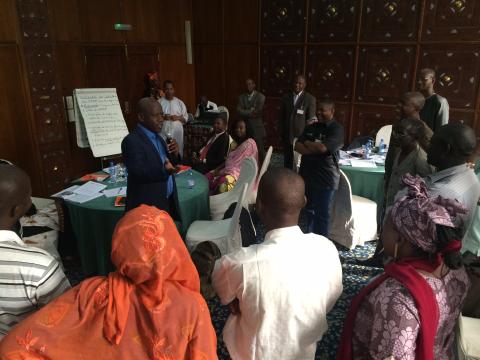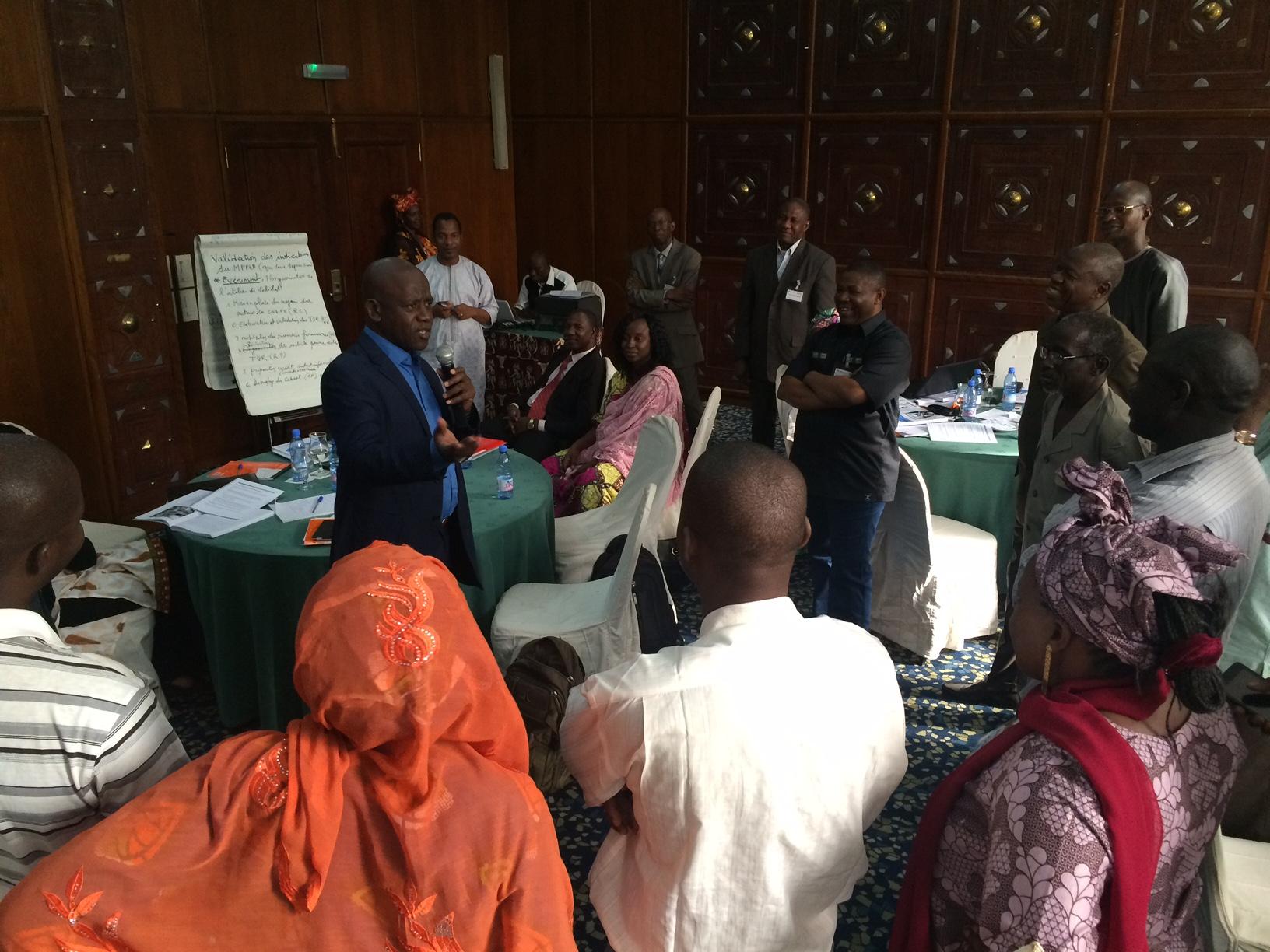
“A dialogue between Stakeholders is a structured discussion on specific issues of common interest between individuals from different sectors and interest groups, in order to achieve a common goal, to solve a problem and / or find innovative solutions”.
This is how facilitators Moussa Gueye and Andrew Aitken from the Collective Leadership Institute introduced the training on stakeholder dialogue, held in Bamako from 9-12 November 2015 with support from the EU-Lux-WHO Universal Health Coverage Partnership (UHC).
Is establishing a structured dialogue in a country still weakened by the effects of a recent socio-political crisis too ambitious an objective? On the contrary, says the WHO office in Mali, which sees strengthening policy dialogue between stakeholders as a fundamental element of the country’s democratic recovery and health reform process: “In consideration of the various interpretations given by different actors to the concept of policy dialogue, one of the EU-Lux-WHO Partnership’s core tasks is to ensure that its principles are not only understood from a theoretical point of view, but that they are also applied in practice” says Dr. Yao, Technical Adviser at WHO Mali.
According to WHO, the aim of the training was to help the country strengthen its policy dialogue around the implementation of the current health sector development plan – known as PRODESS, or “Programme de Développement Socio-Sanitaire” – and focused on developing national capacities in the following areas:
• Policy dialogue on key topics of the health system reform;
• Dialogue at the decentralized level;
• Preparation, negotiation and implementation of operational action plans focused on results; and
• Monitoring/evaluation of PRODESS.
The high level of interest in such a training was not only reflected by the number and seniority of government participants – with 25 high-level representatives from the three ministries involved in the implementation of PRODESS – but also by its certification ceremony, which was chaired by the Advisor to the Minister of Health and Sanitation.
Participants valued the training as highly relevant to the health reform process in Mali: “The content and approach are well suited for senior-level government participants because they are the agents responsible for the development of policies and programs at the ministries represented in this workshop. In other words, the targeting of participants was well done and will, in principle, allow for moving things forward in the context of the PRODESS and even in other areas,” says one participant.
The participatory nature of the workshop and the exchanges that took place during the open debates, in particular, were seen by many participants as important aspects “that have given a lot of added value” to the initiative.
Now the challenge is to put the acquired knowledge into practice. According to WHO Mali, a cascade training program for actors at decentralized levels (regions and districts) is being developed as part of the EU-Lux-WHO Partnership, which is expected to be replicable in other countries.
Finally, what results can be expected from the exercise? According to one participant, “applying the acquired knowledge in practice will allow for maximizing results because it is very important to the success of our interventions. Often we find it hard to explain why our initiatives fail, even if sometimes all that is needed to achieve a result is to engage in a constructive dialogue between stakeholders.”
